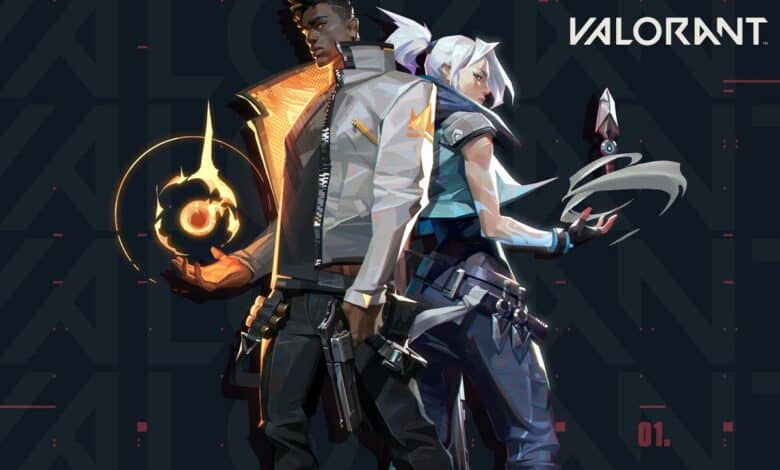Valorant Guide: How to Get to Climb Ranks Faster

Valorant has become the hottest first-person shooter in town in less than a year of its release. The game’s cleaner art style, satisfying sound effects, and fun implementation of agents with various abilities have attracted more players to it and it is topping the charts with its popularity and player count. The game brings the iconic Counter-Strike type gameplay in a much simpler experience and the game has a simpler learning curve than most of the similar games out there right now. Even though the gameplay of Valorant is simple, the mistakes you make in the game can heavily affect your performance and it is important you need to improve all the macro and micromanagement for you to get good at it. This guide will be addressing areas where you can improve and climb the ranks of your dreams in no time.
Before getting on to climbing ranks in Valorant, you should have a proper understanding of how the game works. Valorant is a team-based tactical shooter and it is not exactly your typical FPS game. Few factors define your performance level in the game and improving them will automatically make you good at it and bring you wins more frequently. These factors are:
· Core mechanics
· Micromanagement
· Macro mechanics
· Communication
· Discipline
Improving on core mechanics of the game
Valorant is an accuracy-focussed FPS title where various complicated mechanics like movement error and recoil comes into play. Just like the hit title CS:GO, Valorant also implements a similar movement error rule where the accuracy of your shots depletes when you move. You need to stop moving altogether for your shots to be more accurate and it increases, even more, when you are crouched. This means that strafing around freely when firing is not a good idea. And to add to that, the game also uses the first-shot accuracy rule where only your first shot will hit exactly where the crosshair is and the rest will hit on random spots in random patterns. However, you can still outplay your enemies by moving if you practice the simple mechanic, counter-strafing. Counter-strafing lets you shoot 100-percent accurately back-to-back also while moving and mastering this mechanic can be very helpful in your climb. When you strafe sideways during peeking or simply moving, you can move in the opposite way to stop faster and get that first-shot accuracy more efficiently. If you practice to time it properly, you can hit 100-percent accurate shots back-to-back without a sweat.
The next thing you need to improve on is the recoil control of the guns. Every gun in Valorant comes with its own unique recoil pattern and learning to control recoil by studying the patterns is important when hitting major leagues in the rank ladder. This is probably the hardest skill to master as the recoils of all the guns are random. The game uses an algorithm called random number generator (RNG) to determine where the rest of the bullets land after the first. So with a bit of practice, good reaction time, and a dash of luck, recoil controlling can be mastered to never miss your enemies while spraying a gun.
The rest of the core mechanics you need to know are more generic and common in most modern shooting games. All guns do more damage to player heads than the bodies and aiming for the enemies’ heads is an important skill you must master. Some guns in the game can instantly kill enemies across the map when you headshot them. The ideal way to improve your headshot accuracy is by improving your reaction time and your crosshair placement, both with practice. Placing your crosshair where enemy heads might pop out from is a great habit to practice and it will eventually start getting you more kills. Unrated mode is a great place to practice all of the mechanics that were mentioned so far and make sure you feel confident about these skills before you start queueing in Competitive mode. You can also opt for third-party apps like Aim Lab to improve your aiming and reaction skills.
Micromanagement
Micromanagement in a video game refers to one’s individual skills and mechanics regarding his playstyle and the champion/agent he plays. This becomes important mostly in strategic and tactical games. Since Valorant is a tactical shooter and there are agents with different abilities, micromanagement plays a huge part in determining a player’s skill level. In Valorant, micromanagement mainly refers to a player’s understanding of agents’ abilities and their mechanics in the previously mentioned core game mechanics (recoil control, crosshair placement, movement, etc). A Valorant player should first understand the role he fits best in (fragger, support, etc). Since the game has multiple agent classes that fit different playstyles, players should stick to their best and learn how the agents of his role work. The best way to get good at an agent is by watching guides by pros/better players. There are plenty of guides and line-ups for all the agents on YouTube and practicing them in custom matches can improve a good deal of your micromanagement skills. You might also want to improve your credit management (eco-management) skills as economics in the game play a huge role in a match’s outcome.
Macro mechanics
Macro in a game is the overall understanding of how the game works, its objectives, and strategies. In this case, you should be aware of your map and know when to move and not. Know when to and how to rotate in special scenarios also while having an understanding of enemy rotations. Proper macro mechanics will also help you use time more efficiently. Communication also plays a major role in the improvement of one’s macro so talk with your allies to form strategies and make them happen. Once you start paying more attention to the map and intel on enemies, you will eventually get better at your macro mechanics.
Communication
Valorant is a team game and communication is the key to winning. The game has everything from a voice chat to a text chat and a quick pinging system. Use them properly to call out enemy positions and other intel to strengthen the team synergy. Your simple call-outs can save your allies from dying unnecessarily and they might even carry you to victory. And some agents’ abilities do not give out intel to allies but only the user, so proper communication with active call-outs can add a whole new layer to map awareness and the team’s macro.
Discipline
Tilt, anger, and frustration are common things in competitive video games. You play with other players who have various expectations from you and if you fail to deliver, they might get upset over it. This is inevitable and the better thing to do is get used to it. Try to be tilt-proof and also try not to be toxic to your allies. Keep your calm and once you start respecting people, they will start doing the same. You will still lose matches even though you get cool teammates but be patient and try not to get frustrated. You will start winning matches in no time if you do so.
If you are stuck in certain ranks for long periods of time, take a break and play unrated till you feel confident enough to go back to competitive matches. While playing unrated, try to improve on your weaknesses to come back stronger. Stats and surveys also show how certain ranked players lack certain skills and here are some heads-ups to know what exactly to work on according to your current rank:
· Iron/Bronze: Improve on core mechanics (especially crosshair placement, recoil control) and your micro-skills.
· Silver/Gold: Keep improving on core mechanics including counter-strafing and work on communication and discipline.
· Platinum/Diamond: Communication skills, discipline, and macro knowledge is a must to rank up at this level. Improve on them also while expanding your agent-pool.
· Immortal+: Discipline and communication are the keys at this point. Keep your cool and be open to trying out new roles with new agents making more room for allies.


